Peggy Guggenheim was born in 1898 in New York. Her father, Benjamin Guggenheim, and uncle, Solomon R. Guggenheim were power brokers. The family’s fortune came from mining and smelting industries.

Peggy and her sister grew with a silver spoon and never felt the lack of money. However, they were often left alone due to absent parents. To make things worse, Benjamin Guggenheim died on the Titanic when it sank in 1912. Peggy grew up relatively poorer than her Guggenheim cousins.
She received her inheritance at the age of 21 and became financially independent. She briefly worked for an avant-garde bookstore in midtown Manhattan where she learned about literature and art. In 1920, she moved to Paris where she explored Classical and Renaissance art. She made friends with many writers and artists including Marcel Duchamp. It was through Duchamp that she met so many other artists and collectors in Paris. She met another artist Laurence Vail and married him soon after in 1922. They had two children and divorced in 1928. Her relationships after him were difficult as they were mostly filled with infidelity. She was known to have had many partners including the artists she supported.
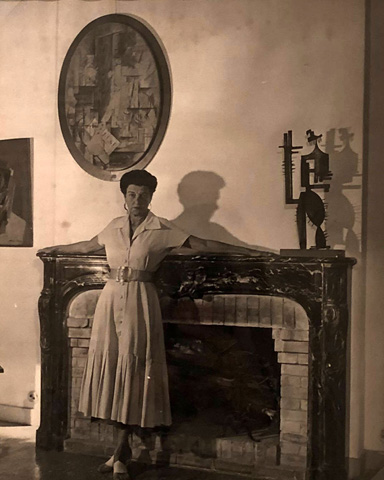
In 1937, her mother died and she received an inheritance from her. She decided that she would start an art gallery in London with some help from Duchamp. The gallery held Wassily Kandinsky’s first solo exhibition as well as works by Yves Tanguy, Henry Moore, Alexander Calder, Jean Arp, Pablo Picassi, Constantin Brancusi and Georges Braque. Guggenheim soon started to build her own personal collection as well.
Although the gallery became well known, it did not make as much money as it needed to. She felt the need to have a more practical business and so Guggenheim decided that she would start a modern art museum and planned to open one in London. In 1939, her uncle Solomon Guggenheim opened the Museum of Non-objective Painting in New York and displayed abstract art. The building in New York was designed by Frank LLoyd Wright.
With the help of Herbert Read, Guggenheim made a list of works she needed for her new museum.She traveled to Paris with a list of abstract and surrealist works that she wanted to buy for the museum when World War II broke out. Unfortunately, she had put her museum plans on hold at that time. However, she was still optimistic ,and bought many works from artists and art dealers who were eager to sell what they had and escape the Nazis. She was able to use the money intended for the museum to buy works by Picasso, Dali, Chagall, Miro, Man Ray, Ernst ,and Magritte among others. When Paris was invaded in 1940, she packed up all her things including the artworks, and sent it to New York by ship. (Ref: TheArtStory - Peggy Guggenheim - Biography and Legacy)
Guggenhiem married Max Ernst and moved to the United States with him. When she moved back to New York, the art scene was still a small community. She opened a gallery in 1942 that consisted of a mix of European and American art. During that time, there were a large number of European artists who immigrated to the United States as a result of World War II. Guggenheim became an early patron of Jackson Pollock who became very well known later. She provided him with a monthly stipend, a commission, and arranged his first exhibition. Her gallery was the foundation of the American art movement in the 1940s and gave many artists showings.
In 1947, Guggenheim closed her gallery in New York and moved to Venice. In 1948, she exhibited her work at the Venice Biennale at the Greek Pavilion. It marked the first time that works by Pollock, Gorky, Rothko, and other American artists were shown in Europe. The presence of Cubist, abstract, and Surrealist art introduced modern art that was yet to be seen in Italy at the time.
Her home in Venice was frequently visited by writers and artists. In 1970, she donated her home Palazzo Venier dei Leoni in Venice to Solomon R. Guggenheim Museum. In 1976, she also donated all her artworks under the provision that it would stay in Venice.

The museum presents Peggy Guggenheim's personal collection, masterpieces from the Hannelore B. and Rudolph B. Schulhof Collection, a sculpture garden as well as temporary exhibitions. The Peggy Guggenheim Collection is part of the Solomon R. Guggenheim Foundation, whose constellation includes the Solomon R. Guggenheim Museum, New York, the Guggenheim Museum Bilbao, and the future Guggenheim Abu Dhabi.
Today, Peggy Guggenheim’s collection features over 300 works by almost 100 modern artists. The Guggenheim collection consists mostly of art from America and Europe between 1938 and 1946. Her museum in Venice is arguably the most visited museum of modern art in the world; it has played an integral role in making Venice a popular city for contemporary art.

Max Ernst (1891 - 1976)
YOUNG WOMEN IN THE FORM OF A FLOWER
1944 / (Cast 1957)
Bronze
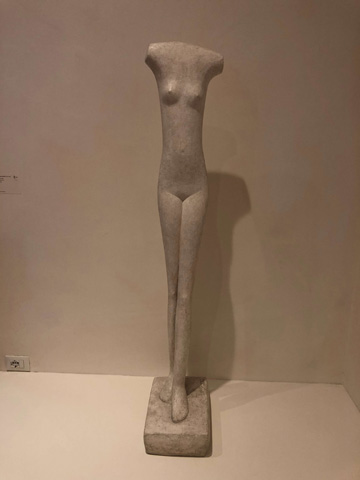
Alberto Giacometti (1901 - 1966)
WOMEN WALKING
1936
Plaster
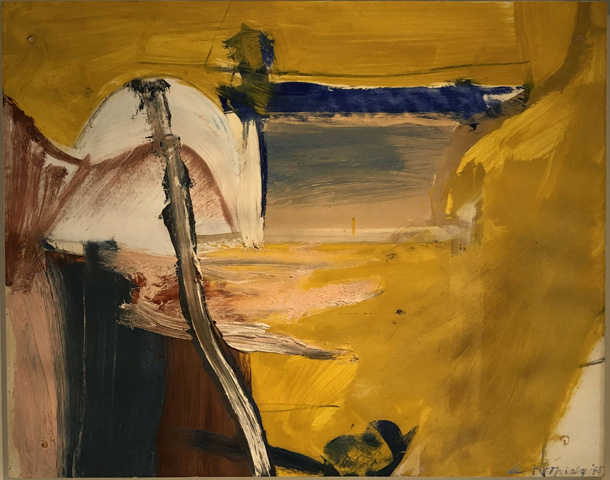
Willem de Kooning (1904 - 1997)
UNTITLED
1958
Oil on paper
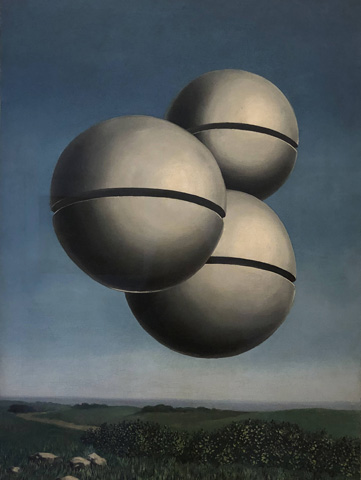
Rene Magritte (1898 - 1967)
VOICE OF SPACE
1931
Oil on canvas
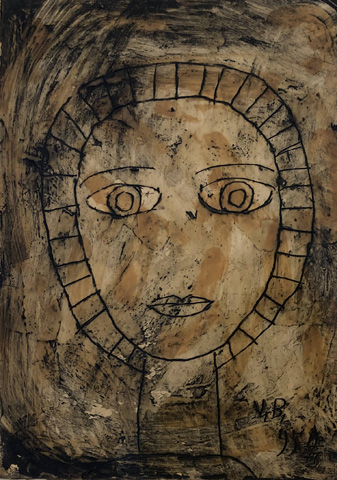
Victor Brauner (1903 - 1966)
UNTITLED
1954
Encaustic on board
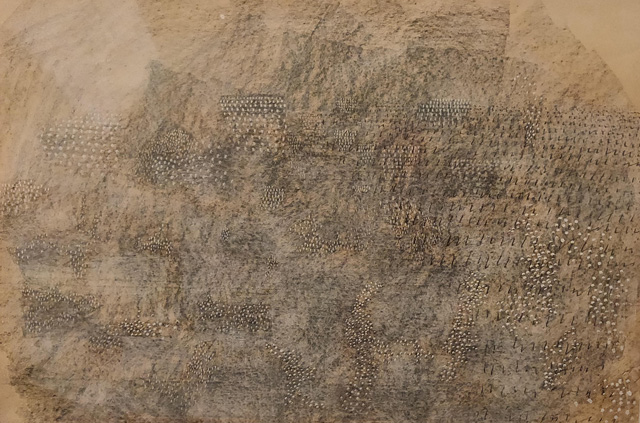
Tancredi Parmeggiani (1927 - 1964)
UNTITLED
1954
Gauche on paper
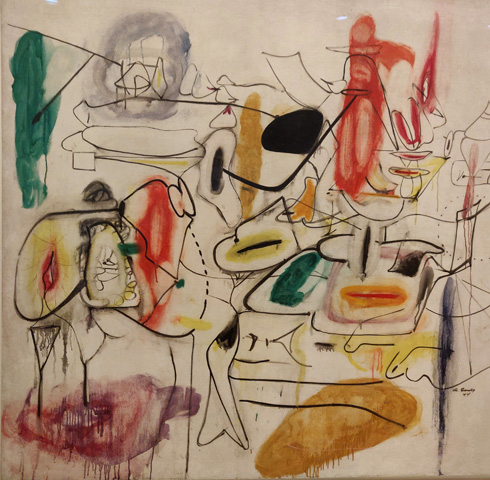
Arshile Gorky (1904 - 1948)
UNTITLED (Estate / Summer)
1944
Oil on canvas

Jackson Pollock (1912 - 1956)
TWO
1943-45
Oil on canvas

Henry Moore (1898 - 1986)
THREE STANDING FIGURES
1953
Bronze

Yves Tanguy (1900 - 1955)
THE SUN IN ITS JEWEL CASE
1937
Oil on canvas
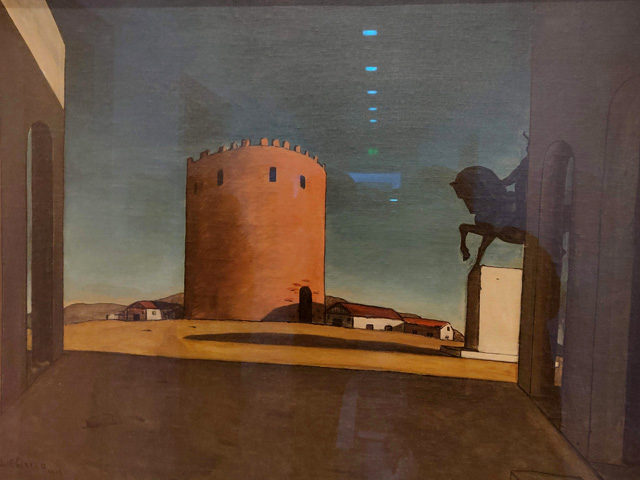
Giorgio de Chirico (1888 - 1978)
THE RED TOWER
1913
Oil on canvas
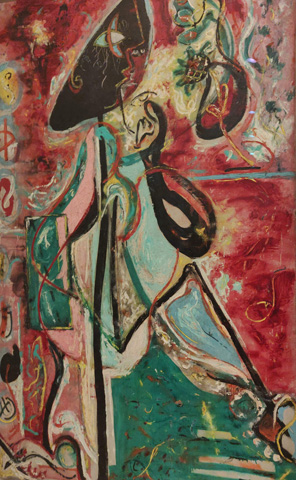
Jackson Pollock (1913 - 1956)
THE MOON WOMEN
1942
Oil on canvas
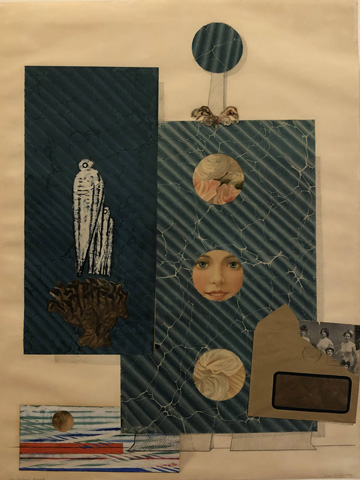
Max Ernst (1891 - 1976)
THE POSTMAN CHEVAL
1932
Paper and fabric collage with pencil, ink and gouache on paper

Max Ernst (1891 - 1976)
THE ENTIRE CITY
1936-37
Oil on canvas
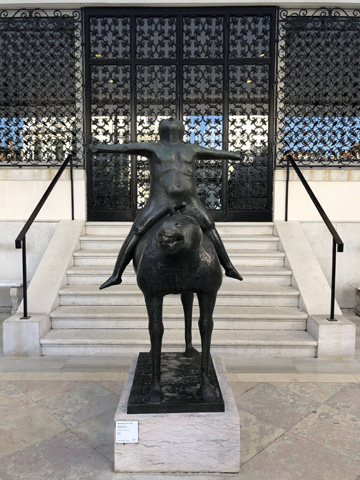
Marino Marini (1901 - 1980)
THE ANGEL OF THE CITY
1948 ( Cast 1950)
Bronze

Germaine Richier (1902 - 1959)
TAUROMACHY
1953
Bronze

Giuseppe Santomaso (1907 - 1990)
SECRET LIFE
1958
Oil on canvas

Max Ernst (1891 - 1976)
SEA, SUN, EARTHQUAKE
1931
Oil, gouache and collage on canvas

Rene Magritte (1898 - 1967)
EMPIRE OF LIGHT
1953-54
Oil on canvas

Roberto Sebastian Matta (1911 - 2002)
THE UN-NOMINATOR RENOMINATED
1952-53
Oil on canvas

John Tunnard (1900 - 1971)
PSI
1938
Oil, gesso, gouache, pestel and wax crayon on board

Yves Tanguy (1900 - 1955)
PROMONTORY PALACE
1931
Oil on canvas
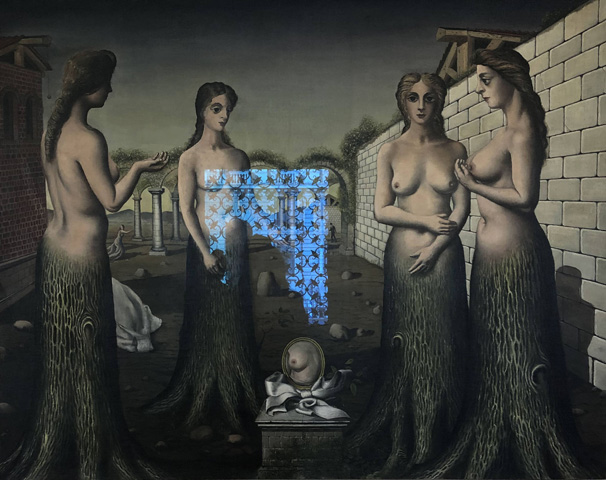
Paul Delvaux (1897 - 1994)
THE BREAK OF DAY
1937
Oil on canvas
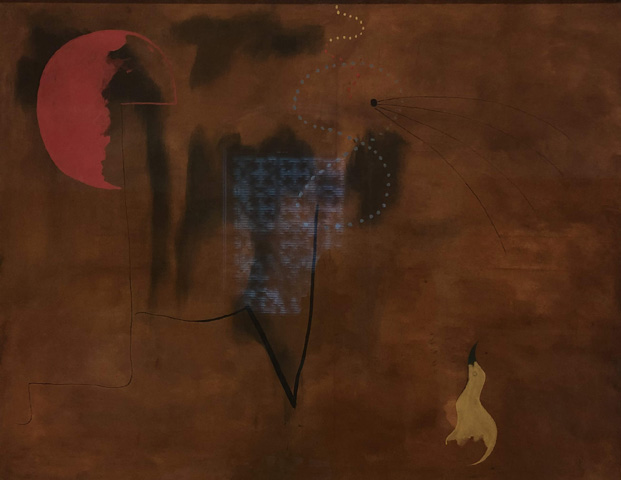
Joan Miro (1893 - 1983)
PAINTING
1925
Oil on canvas

Max Ernst (1891 - 1976)
THE KISS
1927
Oil on canvas

Maurizio Nannucci (1939)
CHANGING PLACE, CHANGING TIME
2003
Neon tubes

Max Ernst (1891 - 1976)
THE ANTIPOPE
1942
Oil on canvas
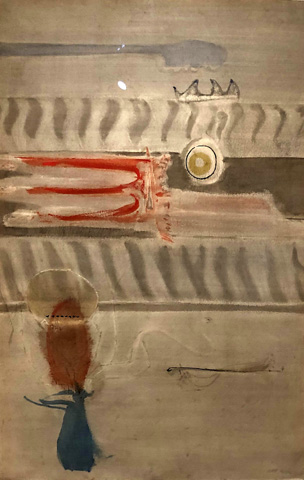
Mark Rothko (1903 - 1970)
SACRIFICE
1946
Watercolor, gouache and India ink on paper

Marino Marini (1901 - 1980)
POMONA
1945
Bronze
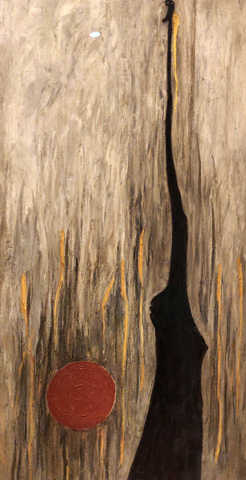
Clyfford Still (1904 - 1980)
MAGGIO
1944
Oil on canvas
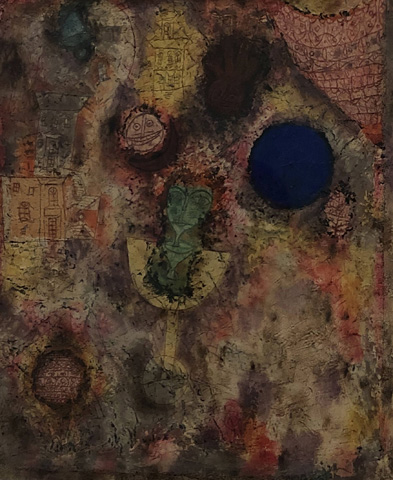
Paul Klee (1879 - 1940)
MAGICAL GARDEN
1926
Oil on plaster filled wire mesh
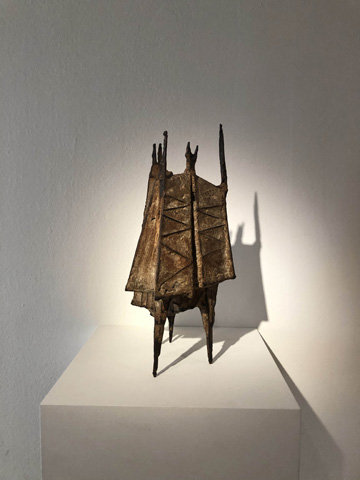
Lynn Chadwick (1914 - 2003)
MAQUETTE FOR TEDDY BOY AND GIRL
1955
Iron and stolit

Jenny Holzer (1950)
GARDEN BENCH
2001
Stone
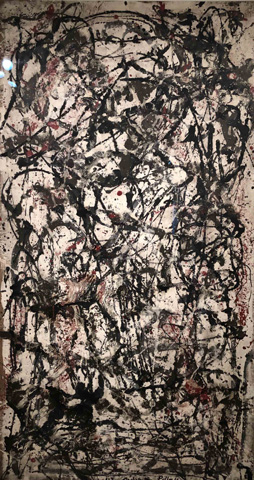
Jackson Pollock (1912 - 1956)
ENCHANTED FOREST
1947
Oil on canvas

Jackson Pollock (1913 - 1956)
ALCHEMY
1947
Oil on canvas

Max Ernst (1891 - 1976)
IN THE STREET OF ATHENS
1960
Bronze
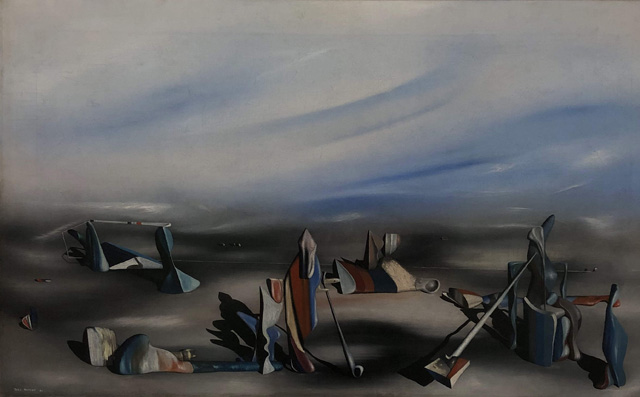
Yves Tanguy (1900 - 1955)
IN AN INTERMEDIATE PLACE
1941
Oil on canvas
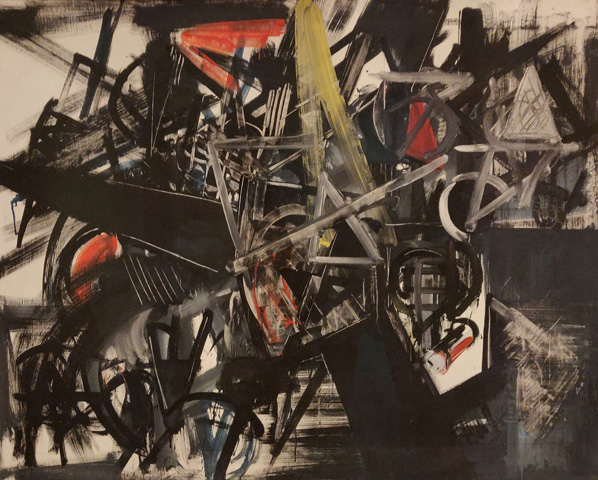
Emilio Vedova (1919 - 2006)
IMAGE OF TIME
1951
Egg tempera on canvas

Henry Moore (1898 - 1986)
STRINGED OBJECT
1938 (Cast 1956)
Bronze and string

Henry Moore (1898 - 1986)
RECLINING FIGURE
1938
Polished Bronze

Henry Moore (1898 - 1986)
FAMILY GROUP
1944
Bronze

Max Ernst (1891 - 1976)
GARDEN AIRPLANE TRAP
1935-36
Oil on canvas

Frank Stella (1936)
GRAY SCRAMBLE
1968-69
Oil on pencil on canvas

Francis Bacon (1909 - 1992)
STUDY FOR CHIMPANZEE
1957
Oil and pastel on canvas

Ellsworth Kelly (1923 - 2015)
BLUE RED
1964
Oil on canvas

Ellsworth Kelly (1923 - 2015)
BLACK CURVE IV
1972
Oil on canvas

Cy Twombly (1928 - 2011)
UNTITLED
1961
Oil paint, crayon and lead pencil on canvas

Cy Twombly (1928 - 2011)
UNTITLED
1967
Oil based house paint and wax crayon on canvas
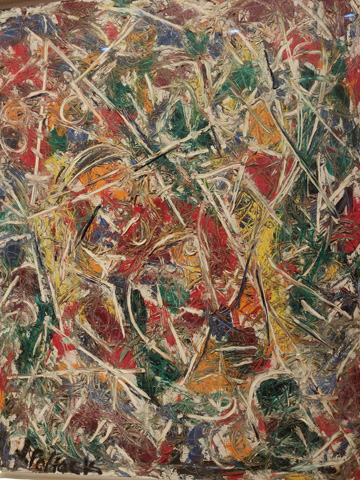
Jackson Pollock (1913 - 1956)
CROAKING MOVEMENT
1946
Oil on canvas
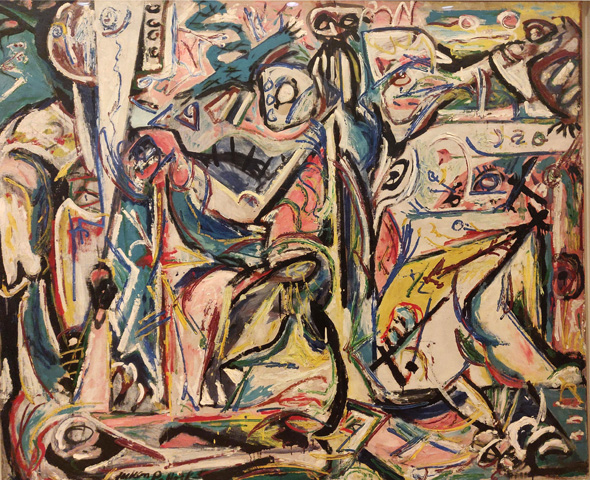
Jackson Pollock (1913 - 1956)
CIRCUMCISION
1946
Oil on canvas

Barnett Newman 1905 - 1970
UNTITLED
ETCHING 2
1969
Etching and aquatint
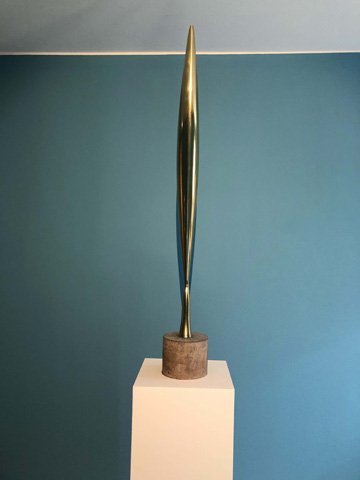
Constantin Brancusi (1876 - 1957)
BIRD IN SPACE
1932-40
Polished brass

Fritz Koenig (1924 - 2017)
CHARIOT
1957
Bronze

Arnaldo Pomodoro (1926)
SFERA N 3
1964
Bronze

Anthony Caro (1924)
HINGE
1966
Painted steel and aluminium

Alexander Calder (1898 - 1976)
ARC OF PETALS
1941
Painted and unpainted aluminium and iron wire

Anish Kapoor (1954)
UNTITLED
1993
Sandstone

Andy Warhol (1928 - 1987)
FLOWERS
1964
Acrylic and silkscreen ink on canvas

Jean Arp (1886 - 1966)
AMPHORA - FRUIT
1946
Bronze

Alexander Calder (1898 - 1976)
THE COW
1970
Painted steel

Alberto Giacometti (1901 - 1966)
WOMEN WITH HER THROAT CUT
1932
Bronze
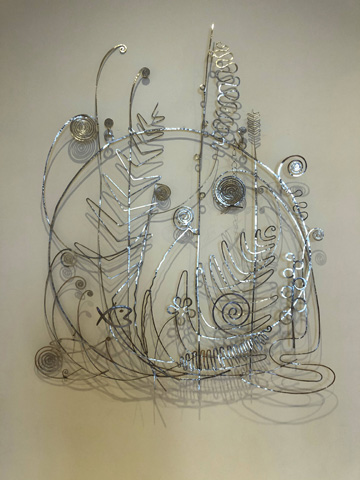
Alexander Calder (1898 - 1976)
SILVER BED HEAD
1945-46
Silver
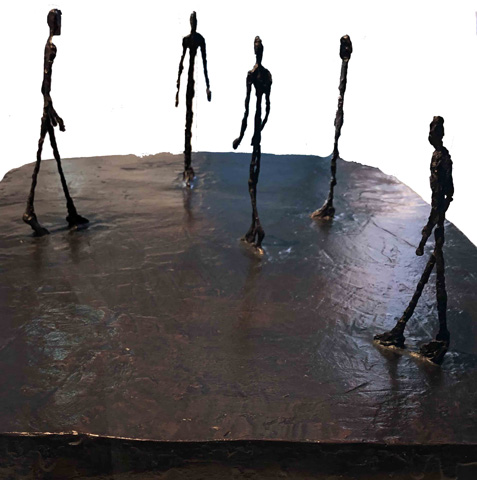
Alberto Giacometti (1901 - 1966)
PIAZZA
1947 (Cast 1948)
Bronze

Victor Brauner (1903 - 1966)
THE SURREALIST
1947
Oil on canvas

Victor Brauner (1903 - 1966)
TELEVENTRE
1954
Encaustic on board

Vasily Kandinsky (1866 - 1944)
WHITE CROSS
1922
Oil on canvas

Vasily Kandinsky (1866 - 1944)
UPWARD
1929
Oil on cardboard
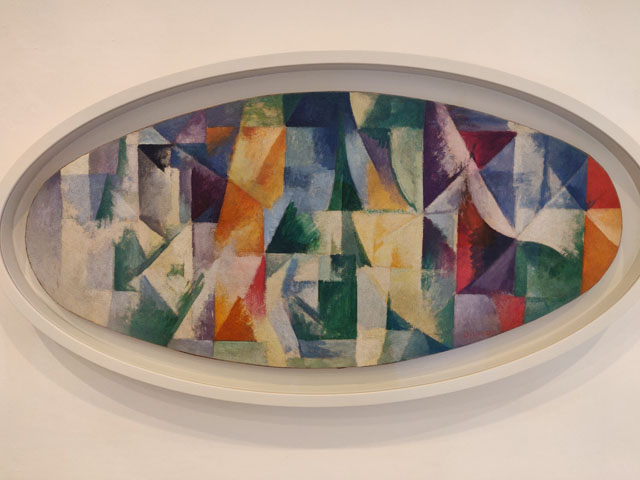
Robert Delaunay (1885 - 1941)
WINDOWS OPEN SIMULTANEOUSLY PART, 3 MOTIF
1912
Oil on oval canvas

Salvador Dali (1904 - 1989)
BIRTH OF LIQUID DESIRES
1931 - 32
Oil and collage on canvas

Rufino Tamayo (1899 - 1991)
HEAVENLY BODIES
1946
Oil with sand on canvas

Pablo Picasso (1881 - 1973)
HALF-LENGTH PORTRAIT OF A MAN IN A STRIPED JERSEY
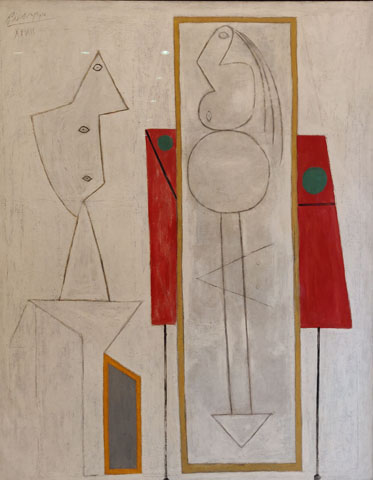
Pablo Picasso (1881 - 1973)
THE STUDIO
1928
Oil and black crayon on canvas
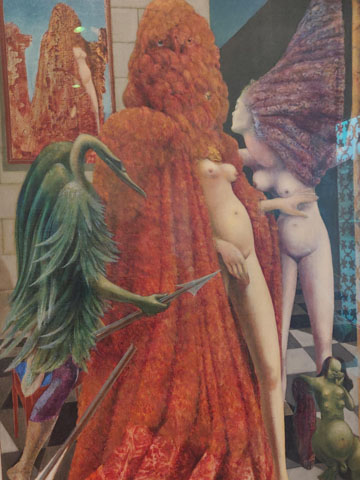
Max Ernst (1891 - 1976)
ATTIREMENT OF THE BRIDE
1940
Oil on canvas
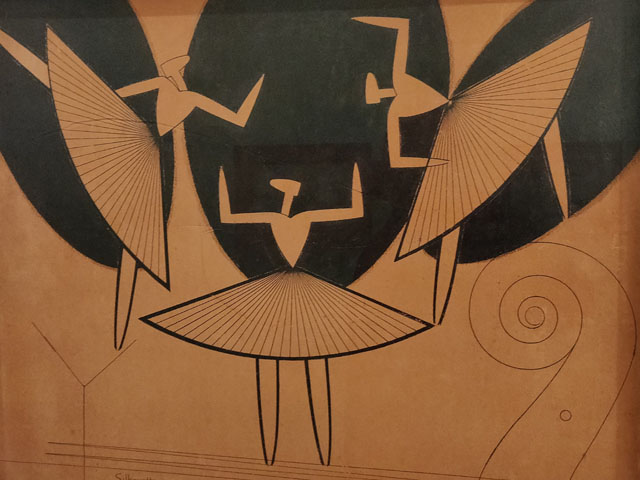
Man Ray (1890 - 1976)
SILHOUETTE
1916
India ink, charcoal, (and gouache?) on board

Joan Miro (1893 - 1983)
SEATED WOMEN II
1939
Oil on canvas

Joan Miro (1893 - 1983)
ESTATE / SUMMER
1925
Oil on canvas

Jean Helion (1904 - 1987)
COMPOSITION
1935
Oil on canvas

Jackson Pollock 1912 - 1956
DIRECTION
1945
Oil on canvas

Henri Laurens (1885 - 1954)
HEAD OF A YOUNG GIRL
1920 (Cast 1959)
Terracotta
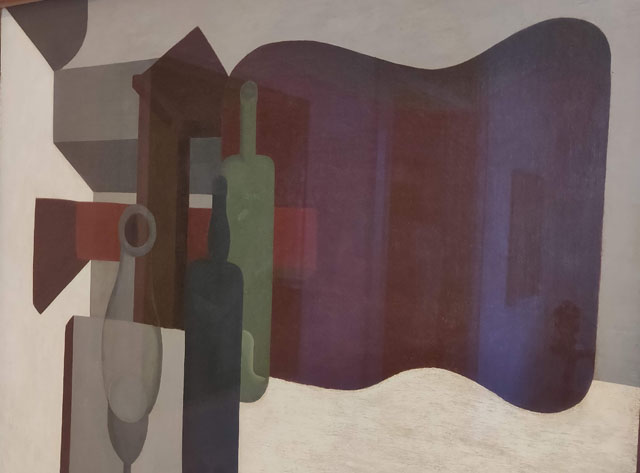
Amedee Ozenfant (1886 - 1966)
GUITAR AND BOTTLES
1920
Oil on canvas